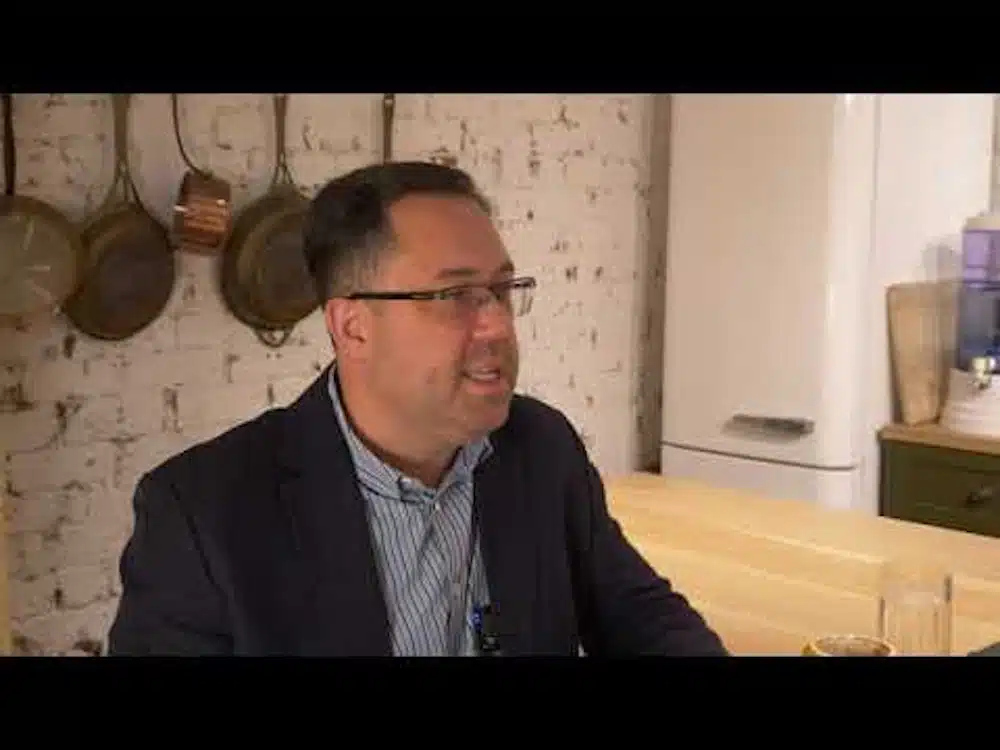Video: Link to video on the Liberty ITCG YouTube channel: https://youtu.be/J1leQsaKERA
John Dimitropoulos
We are both in the Technology industry and in my mind, there is an evident shortage of people. There are so many technologies around us, there is so much demand to support technology, to modernise technology, to upgrade and so forth. But when we look at the available capacity in Australia, I don’t believe there is enough. The supply that is coming through universities is not enough. So, what the Industry tends to do… how it fixes the problem… is to send jobs overseas or it will attract people from overseas to come and work here or simply ask people to work more, work harder. But the problem is not going to go away, The problem is going to get worse. I know 2023 might have been a tough year on People. We’ve heard about a lot of jobs being lost in the Tech sector. But, I think that’s going to go away. Because… like I said, technology is not going away. It’s here, we need it, it’s part of everyday life. For the Universities though… and I know the industry has to work with government and academia… a lot of grads are coming out of University so how do we make certain that they stay in Australia and that those fine minds that you (the University) produce, stay and help this country go forward. As opposed to jumping on a plane and going to the other side of the planet? But also, at the same time, how do we attract more people from overseas to come and study and work here? I know what we’re doing in the Industry, what does Academia have to say about that?
Michael Blumenstein
Yeah, look that’s a great question, John. I think firstly to your point about retaining the top minds, the innovative minds that are graduating from our universities whether it’s UTS or any other university, at the end of the day I think that is a challenge. And I think one of the things that, you know, and I don’t want to burn the industry with some of the sort of solving some of these challenges, but it’s a partnership I think between universities and industry. One of the things is students that graduate really like to see line of sight to that career I was talking about. And I think we’ve got to ensure that the ecosystem in this country is there to promote the growth of companies that have been established or founded and grown in Australia to get more of these graduates and to instil a sense of you do not have to necessarily go get a job as a lawyer or as a doctor because, you know, or in standard business because that unfortunately is where, you know, the older mindset of some of the, well, I’d say the parents of these students has gone and that’s just because of legacy.
We’ve had, there’s just this view that that’s where the jobs are. We need to create a the actual jobs by industry to actually attract our students and to keep them here so that there’s career pathways. And number two, we also need to sort of communicate that better. I just think we’re missing opportunity if we’re not all coming together. And by the way, I said industry, but I also mean industry associations. We’ve got so many IT or technology industry associations in Australia or professional organisations. We’ve got the Australian Computer Society, we’ve got the A -W -I -A and we’ve got the Tech Council just to name a few.
I think what’s the messages there are good. They do each put out reports around where the sector is in deficit and what are the hot jobs that are out there and so forth. For whatever reason, it doesn’t always penetrate, I don’t think, to the public.
And I’m not sure whether that’s because some of those associations and those organisations do speak to government because they want government to know that there are issues. And of course, government has levers, for example, to address that situation about getting people from overseas that sometimes companies need.
But what we really need to develop and that’s fine to get skills from overseas. I don’t see a problem with it. Just as we as universities get students from overseas, that’s fine. But we need a domestic pipeline as well.
We do need our own set of students that it’s not just this generation, it’s the next generation to come. We need to make it, we need to make the messaging clear. We need to create the jobs and opportunities that will enable them to stay.
We need the messaging of all those associations. I mentioned to be on the same page. I mean, unfortunately there is a little bit of fracturing there because every association or professional organisation wants to say, you know, talk about itself a little bit, but the reality is that we’re all having to work together under one element and that I think will actually create a stronger proposition for the messaging not only to government, but back to the students and the parents that we should, you know, be encouraging to come into the most exciting sector in the country and it’s growing. I mean, we’ve got so many success stories. We hear about Canva. We hear about Wise Tech Global. We hear about other, you know, these companies have been established here, but we need more of them, you know, and we need the… The other thing I think we need to do is probably I just want to pause a bit about what I said earlier around the fact that at the end of the day, there are a lot of students and just like you after you graduate. that wanted to create their own companies. We need to also create a real authentic ecosystem for startups and scale -ups to flourish.
There are some missing pieces there, unfortunately. I mean, VC investment, you know, support in the ecosystem about tangible stuff. It’s okay to be a startup and then just sit there at startup level. But how do you get to that next level? How do you create those jobs of the future? Because that’s also the trigger to get more in the domestic pipeline for people who want to, you know, come to the industry. You’ll get more people interested when you’ve got established companies that are offering new and innovative jobs and career pathways. But you get even more when you actually satisfy the issue of, you know, the innovation ecosystem producing enough jobs through the startup, scale -up and SME sector. At the end of the day, we’re still 90 plus percent SMEs in Australia. We need to look at that, you know, holistically as a country to address that problem. And I think, you know, in terms of, you know, attracting international students, look, I think we’re doing whatever we can to support the state government’s mission, which is always trying to get more international visitors, but also international students in the state.
The Australian government’s support of creating opportunities for people who do degrees and high degrees to get employed. If they come from international quarters. So there’s been a lot of movement there, which is really good. So, you know, it’s not just temporary visas or work visas that the government has leveraged. It actually has created opportunities for students that are attracted through. And we do a lot to try and attract international students to do some of our most popular programs. Again, it always sits in IT as some of our most popular programs that are taken up by international students. But what happens to them after also helps a lot and some of the mechanisms to create opportunities for them to fill the skills gaps that the government has as levers has actually benefited a lot.
So, I think we need to do more of that, but also more of attention to our domestic pipeline. Because also we need to worry about the fact that we’re also in an age where we need sovereign capability. And that comes from the domestic pipeline as well. So I think all of that, that’s where we need to focus.



